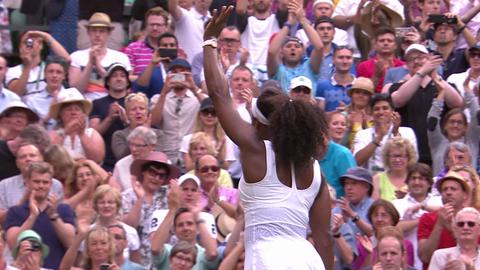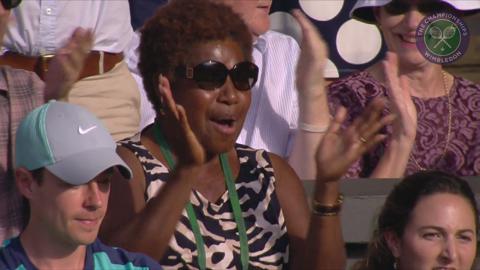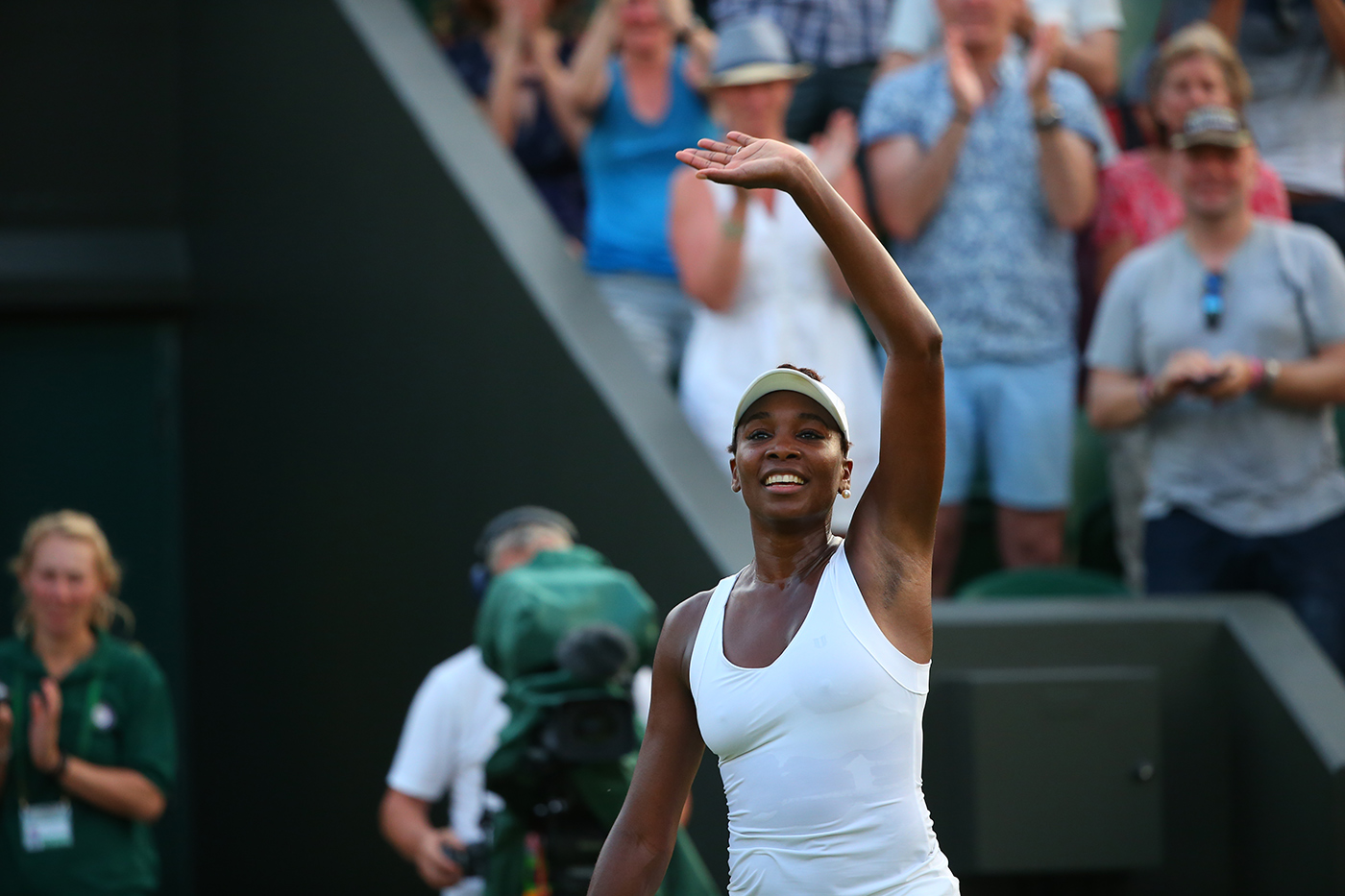The last time a British woman beat a world No.1, it was so long ago that neither 33-year-old Serena Williams nor even her 35-year-old sister Venus was yet a twinkle in their parents’ eyes. (That was Sue Barker over Chris Evert in 1979, since you ask.)
In her first career meeting with Serena Williams, Heather Watson stood at 2-6, 3-4 when she won six straight games to turn this third-round match on its head and put Serena’s potential calendar Slam in dire peril. The 20-time Grand Slam champion roared back to 4-3 in a thrilling deciding set, yet the unheralded world No.59 would not lie down.
She produced tennis of the highest quality to come within two points of victory, but ultimately could not match the consistency of Serena’s aggression. Williams needed three match points and was almost in tears of exhaustion when she came through 6-2, 4-6, 7-5 in two hours and 14 minutes. She will face her sibling Venus in the last 16 – sister versus sister, one five-time Wimbledon champion against another.
“I honestly didn’t think I was going to win,” said Serena. “How I pulled through I really don’t know. I was thinking I would be hanging around to watch Venus play. I couldn’t keep up with her. I thought maybe it just wasn’t my day. I should have won the second set and I didn’t. This was a match I think I would have lost last year or the year before. Mentally I’m stronger now. The older I get, the tougher I get upstairs. But I don’t think I’ve ever played the crowd here like that. They were really vocal – in between points, during points… I’ve never heard boos here, that was new for me. They were rooting for their champion. You can’t blame them – I would be too.”


For her part, Watson was understandably despondent. “No, I wouldn’t call losing the greatest day of my career,” she said. “I was two points away so I’m pretty disappointed. Even now I just wish I could go back and play one point different to see if it would have changed things. It was a tough, tough ask. I was super, super close. That’s what hurts the most.”
And yet there was no hint in the first set of the drama that would ensue. For Watson, that set was all about baby steps – getting on the scoreboard, trying to make some kind of impression. She landed some good blows and 2-6 was no disgrace against Serena, especially as she was equalling her own best Grand Slam performance by reaching the third round. And it was just her second time on the Centre Court – on her debut three years ago, Agnieszka Radwanksa granted her just two games.
Serena’s mother Oracene left the court after the first set, presumably thinking she had seen enough. In fact she hadn’t seen the half of it, and nor had the rest of us. At 2-2 in the second set, Watson began to force break points, and when Serena double-faulted on the second of those, the Centre Court bellow must have been audible on the Channel Island of Guernsey where Watson was born. Serena stepped up her aggression to level it, but Watson breached the American’s defences again and held on to close out the set.
Into the decider, and suddenly Serena’s error count was heading to disastrous levels. Watson took her streak to six games to go a double break up. But Williams was not so much urging as howling herself on with those visceral yelps which are her signature in a crisis. At 5-4 Watson was just two points from victory, but could get no nearer. Serena won the last three games for her 24th successive Grand Slam match win, and will face Venus for the first time at Wimbledon since 2009 when she beat her in the final.
“Venus is in better form than I am, but at least one of us will be in the quarter-finals,” said Serena. “I’m in awe of her in practice right now. Worst case scenario I don’t do well, I’ll just keep trying to move forward. She’s the toughest player I’ve ever played. But she’s my sister today, my sister next week, next year. That’s more important than the match. We’ll leave everything out on the court and when it’s done, go back to regular life.”

